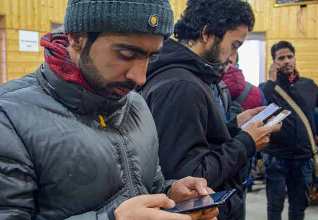

By Linus Garg
First publised on 2020-03-05 12:49:10
The J&K administration has taken the decision to allow the use of social media in the state. Currently, it has been allowed only on 2G networks and fixed-line internet. But it is a huge step forward in restoring normalcy in the state.
No state can live in isolation and with such severe restrictions in this age of instant communication. Although the role of social media in the spread of fake news and incriminating material cannot be underplayed, a blanket ban for an indefinite period is not the solution.
But since many riots in recent times have taken place due to alarmist forwards on social media and instant messaging platforms, the government was right in suspending the use of the same after the momentous decision to abrogate Article 370. The problem was in keeping the ban running for such a long time.
At that time, it was feared that the opponents of the decision would try and disrupt peace by spreading rumours. In J&K, the additional fear was from the Pakistani angle. It was quite possible that terror groups based in that country or even social media handles dedicated for the purpose would have used social media and instant messaging to create divisive narratives and mislead the people of the state. They might have used the geographical similarity in PoK and the Kashmir valley to create inflammatory videos in PoK and pass then off as incidents in the valley to spark off riots.
But since seven months have passed and since the state is showing signs of returning to normalcy, it is necessary for the government to relax the restrictions. The government has been doing so in phases but in an excruciatingly slow manner. While the ground situation and the security concerns might have hindered a faster response until now, international pressure is mounting. If the government does not take fast decisions now, it might lose the goodwill that allowed it to negate the negative narrative that Pakistan tried to build around Kashmir after the abrogation of Article 370.











